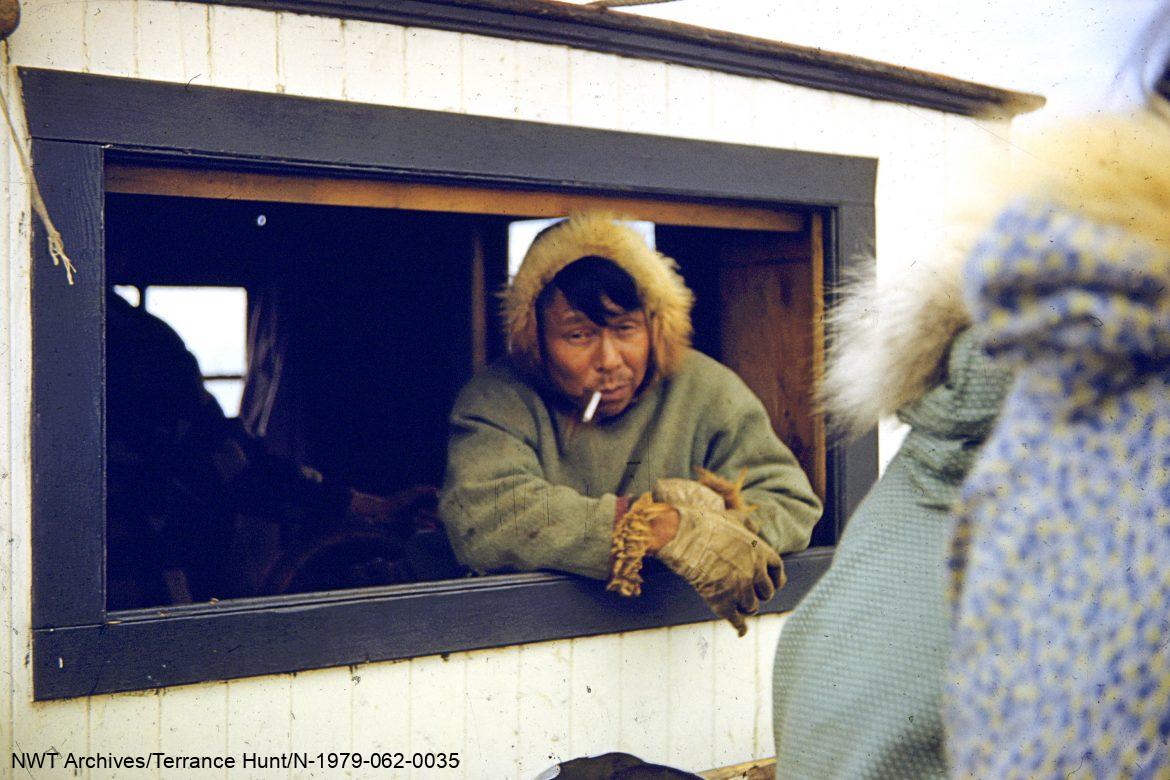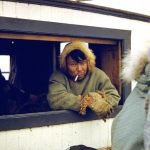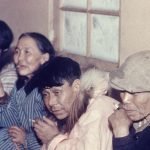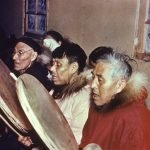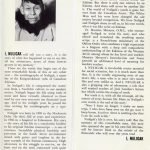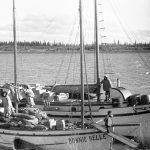1966
‘I, Nuligak:’ An Inuvialuit Autobiography
When the book I, Nuligak, was published in 1966, it was recognized as the first Inuvialuit autobiography. I, Nuligak, offered a glimpse of a time and place that few Canadians knew existed outside the Arctic Coast.
Nuligak – or Bob Cockney, as the missionaries later christened him – was born in 1895 in Kittigazuit, a traditional Inuvialuit community near the eastern edge of the Mackenzie River delta. His childhood was a time of significant change. American whaling ships had entered the Beaufort Sea a few years earlier and established operations on Herschel Island. Their ships became a familiar sight in the waters of the Mackenzie Delta and the adjacent Arctic Coast. The Americans brought both prosperity and suffering to Nuligak’s people. Some Inuvialuit became wealthy by being employed on whaling ships and trading furs and meat for American manufactured goods. It exposed them to alcohol and disease, breaking up family kinship practices and traditional hunting ways.
Nuligak wrote, “Being orphaned early, the first years of my life were spent in poverty and hardship.” He survived through the kindness of others, and as he grew and became a good hunter, he always shared meat with those in need. While in his teens, Nuligak also began working on American whaling ships and, by 1910, had learned to read and write.
As the Western Arctic whaling industry declined due to the extermination of the region’s whales, Nuligak began to buy steel traps and was soon making his living as a white fox trapper. White fox pelts were worth a lot of money, and the 1920s became a time of tremendous prosperity for many Inuvialuit trappers. They became active participants in the fur industry, allowing some to afford expensive schooners. By 1925 Nuligak was able to buy his own ship. He ordered a schooner from the Northern Trading Company, and the Bonnie Belle arrived in 1926. Nuligak described this brand new, 40-foot schooner as having a “Francisco Standard heavy-duty ten horsepower machine-to-make-fire.”
Nuligak had gone from a poor orphan to a wealthy, literate schooner owner. But soon, the white fox trade declined like whaling before it; by 1932, Nuligak’s income from trapping white foxes bottomed out at $70. He survived by using the Bonnie Belle to haul freight along the Arctic coast, and by 1940, with the rise in the value of muskrat pelts, he was back living in the Mackenzie delta as a muskrat trapper.
In declining health in the 1950s, Nuligak began to write the story of his life in his Inuvialuktun language. He wrote of his earliest memories of Beaufort Sea whalers, white fox and muskrat trapping, family and friends, and of times both good and bad. His book, I, Nuligak, was translated into English by Father Metayer and published in 1966, the year Nuligak died in an Edmonton hospital.
